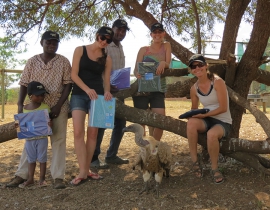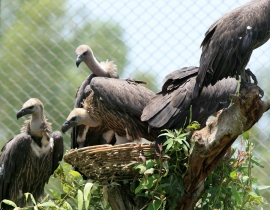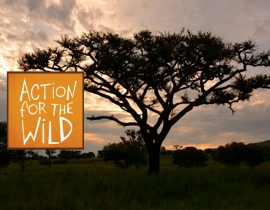Posted November 16, 2017 in All
Colchester Zoo Action for the Wild’s annual donation to VulPro enabled them to continue in 2017 with their surveys of several Cape Vulture breeding colonies, currently covering approximately 50% of the entire Cape Vulture breeding population globally.
Success rate for the 2017 breeding surveys shows positive results. Some of the Cape Vulture colonies continue to show slight upward trends, which VulPro associate with the mitigation of power lines, as well as the supplementation of safe, reliable and uncontaminated food sources within the vultures’ foraging range. In total, 2,052 pairs were documented, with a total of 1,761 active nests.
With African vulture populations declining at a rapid rate, it is really optimistic seeing favourable breeding pair counts and recording high breeding success rates at most of the monitored and surveyed sites by VulPro. With positive and ongoing intervention, vulture populations can potentially be secured through threat mitigation, education, landowner extension programmes and involvements, and collaboration amongst communities living amongst vultures. Africa’s biggest problem remains that of poisoning, where in South Africa, the biggest threat remains that of power line collisions and electrocutions. VulPro continues to address both these threats with emphasis on power lines, as this is a tangible threat that can be effectively addressed, which will ultimately have a huge positive effect on the vulture populations in South Africa.



